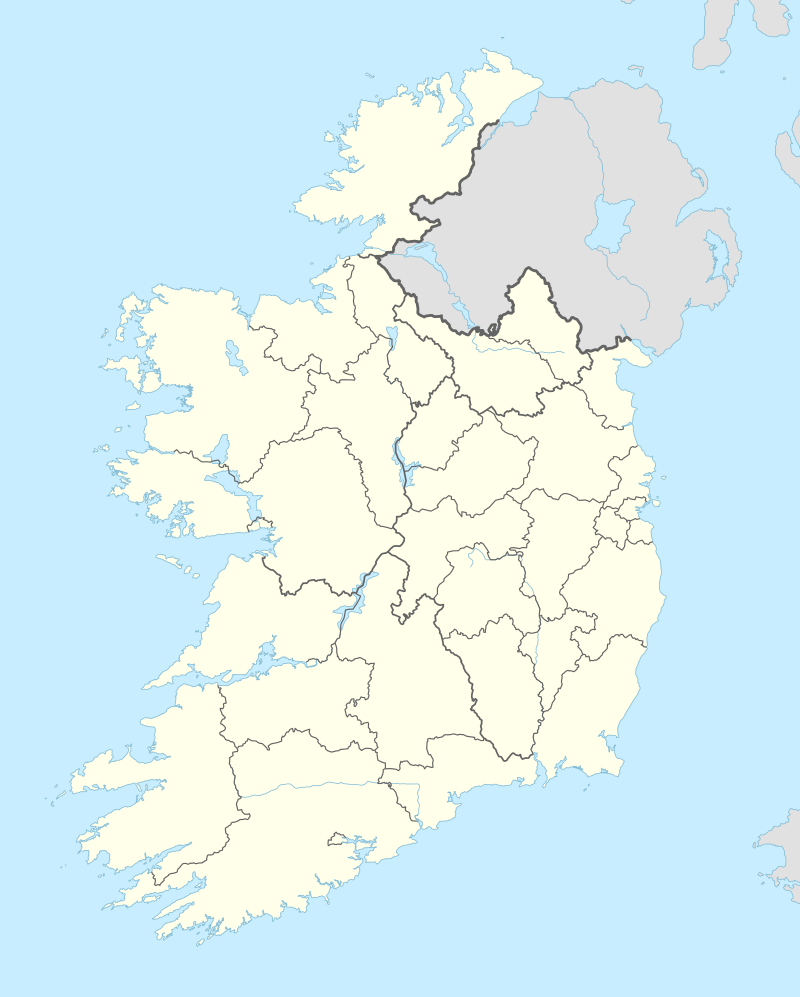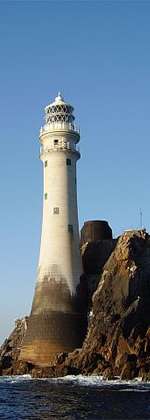Arranmore
| Árainn Mhór Arranmore | |
|---|---|
| Island | |
|
Traditional housing on Arranmore. | |
 Árainn Mhór Location in Ireland | |
| Coordinates: 54°59′22″N 8°31′51″W / 54.98953°N 8.53089°WCoordinates: 54°59′22″N 8°31′51″W / 54.98953°N 8.53089°W | |
| Country | Ireland |
| Province | Ulster |
| County | County Donegal |
| Government | |
| • Dáil Éireann | Donegal South-West |
| Area | |
| • Total | 22 km2 (8 sq mi) |
| Population | |
| • Total | 529 |
| • Density | 24/km2 (62/sq mi) |
| Time zone | WET (UTC+0) |
| • Summer (DST) | IST (WEST) (UTC-1) |
| Irish Grid Reference | B665155 |
| Árainn Mhór is the only official name. The anglicized spelling Arranmore has no official status. | |
Árainn Mhór (English name: Arranmore)[1][2] is an island off the west coast of County Donegal, Ireland. Arranmore is the largest inhabited island of County Donegal, with a population of 514 in 2011, down from 528 in 2006, 543 in 2002, and over 600 in 1996. The island is part of the Donegal Gaeltacht.
It is also known in English as Aran Island (not to be confused with the Aran Islands off Galway Bay or the Scottish Isle of Arran). In Irish the island was traditionally called Árainn; the adjective mór (large) was added fairly recently. It was also sometimes called in Irish Árainn Uí Dhomhnaill, meaning the 'Aran of the O'Donnells'.
Irish language
There are 529 people living on Aranmore and 62% are native Irish speakers. During the summer, students of all ages, from all over Ireland travel to the island for a 3 week holiday. It is a very popular way of meeting new people and also learning the Irish language. Students attend school during the day and play games and dance in the evenings. They are taught about the Irish language through Irish. Irish must be spoken at all times over the 3 week period. The college on Arranmore is known as `Colaiste Arainn Mhoir', meaning the college of Arranmore.
Location

The island lies 5 km (3 mi) off Burtonport, a small coastal village in The Rosses, and is served by two ferry services, a conventional ferry that accommodates up to 96 foot passengers and all sizes of vehicles. This journey takes 15 minutes. In 2007, a fast ferry service commenced which can cover the run to the island in 5 minutes. Both services run daily all year. The trip to the island passes a number of small islands before crossing a stretch of open Atlantic water.
Habitation

Most of the population lives along the southern and (comparatively sheltered) eastern coast, where the main village, Leabgarrow (Irish: Leadhb Gharbh), is located. The island has been settled since 'pre-Celtic times', and the few remaining signs of early settlement include a promontory fort to the south of the island and shell middens dotted along the beaches. Its position near the Atlantic shipping lanes was exploited, with a coastguard station and a lighthouse positioned on the most north-westerly point, and a World War 2 monitoring post set up to look out for U-Boats.
The permanent population is 650, but this rises to well over 1,000 during the summer months. A large proportion of the housing stock are holiday homes, with both native islanders and their descendants, as well as non locals.
| Historical population | ||||||||||||||||||||||||||||||||||||||||||||||||||||||||||||||||||||||||||||||||
|---|---|---|---|---|---|---|---|---|---|---|---|---|---|---|---|---|---|---|---|---|---|---|---|---|---|---|---|---|---|---|---|---|---|---|---|---|---|---|---|---|---|---|---|---|---|---|---|---|---|---|---|---|---|---|---|---|---|---|---|---|---|---|---|---|---|---|---|---|---|---|---|---|---|---|---|---|---|---|---|---|
|
|
| ||||||||||||||||||||||||||||||||||||||||||||||||||||||||||||||||||||||||||||||
| Source: Central Statistics Office. "CNA17: Population by Off Shore Island, Sex and Year". CSO.ie. Retrieved October 12, 2016. | ||||||||||||||||||||||||||||||||||||||||||||||||||||||||||||||||||||||||||||||||
Infrastructure and economy

The island was the first offshore island in the Ireland to get electricity from the Rural Electrification Scheme, run by the E.S.B., in 1957, but was amongst the last places in the country to get universally reliable piped water (in 1973-75) and an automatic phone exchange (in 1986). It went directly from a manual switchboard to an ISDN-enabled system, which had to be upgraded within weeks due to massive demand for consumer phone lines, as the previous exchange had been limited to issuing numbers to business ventures only, and only had 47 internal lines.
It relies mostly on tourism for its income (fishing was the island's mainstay up to the 1980s but is no longer a significant industry), as well as the traditional Gaeltacht summer schools. In recent years, a local development co-op has encouraged the development of other industries on the island, such as a call centre and teacher training for Irish teachers. The island's many lakes provide rod fishing opportunities.

Arranmore transmitter
The Arranmore Island transmitter is a relay station used by 2RN and Highland Radio to provide coverage to the island and much of The Rosses which are shielded by mountains from the main transmissions. Two towers exist, the smaller of which belongs to Highland Radio, and the significantly larger to 2RN. The EIRP of the stations transmitted by 2RN is amongst the highest of any relay station. The site is 125 m above sea level, with the 2RN antenna standing at 45 metres.
A 1 kW transmitter, on 104.0 MHz, has been proposed for the i102-104FM radio station which launched in February 2008. Both O2 Ireland and Vodafone Ireland have transmission stations on the 2RN mast.
UHF 45 is allocated to but unused by TV3. 41, 44, 47 and 51 are allocated for Digital terrestrial television.
Other

The island is 'twinned' with Beaver Island, an island in northern Lake Michigan where a large number of former residents gathered after being evicted from Arranmore in the mid-1800s. There are still today a number of families on Beaver Island that trace their roots to Arranmore.[3]
The Arranmore RNLI Station, with its Severn-class lifeboat, is amongst the best equipped in the county.
Places and villages on Arranmore Island
- Aphort
- Plohogue
- Fallagowan
- Ballintra
- Ballard
- Illion
- Leabgarrow (main settlement)
- Leabrannagh
- Pollawaddy
- Scraigatoke
- Torries
See also
References
- ↑ Placenames (Ceantair Ghaeltachta) Order 2004
- ↑ As to the meaning of the name, see Deirdre and Laurence Flanagan, Irish Place Names, Gill & Macmillan, 2002.
- ↑ http://www.beaverbeacon.com/2003-03-March/The_Way_it_was_The_Arranmore_Connection.html
External links
| Wikivoyage has a travel guide for Arranmore Island. |
| Wikimedia Commons has media related to Arranmore Island. |


